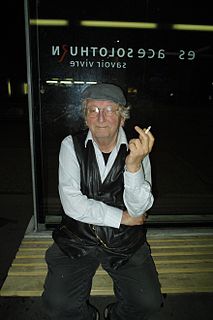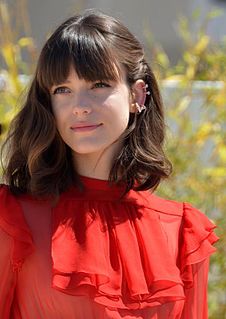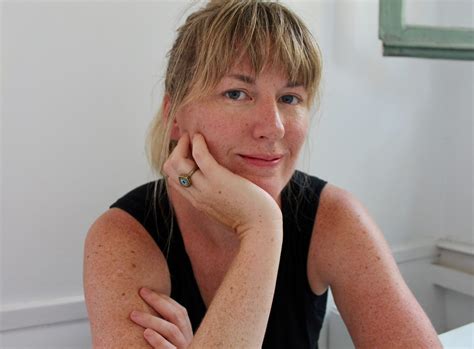A Quote by Peter Bichsel
It is strange, how quickly people want to obligate their poets, as it were, on the exile.
Related Quotes
I think that poets can say, "What we want is for everybody on earth to wake up free from fear and with access to medicine and clean water and education." But I don't think poets have any special insight on how to get there. And the 20th century is a pretty good record of that because so many of the great poets were Stalinists: Vallejo, Neruda, Eluard, Aragon, etc. They wrote their odes to Lenin and Stalin. They glorified some of the most violent and grotesque dictatorships of the 20th century. And a lot of the ones who were not Stalinists were fascists or fascist sympathizers.
Probably all of us, writers and readers alike, set out into exile, or at least into a certain kind of exile, when we leave childhood behind...The immigrant, the nomad, the traveler, the sleepwalker all exist, but not the exile, since every writer becomes an exile simply by venturing into literature, and every reader becomes an exile simply by opening a book.
When you're starting out as an actor people are very interested in who you are because they want to know where they can put you. And quite often, and we're all guilty of this is our lives, we judge very quickly and we pigeon-hole people very quickly based on how they look and how they talk and how they dress and we think: "Oh yeah, we know who you are."
I just said let's get some poets on tv. And when they said that sounded unlikely, I made it worse. I said, no man, I want to put a bunch of black poets on stage, too. Some Latino poets who barely speak English and Asian poets who can't believe how discriminated against they are. It was luck nad being in the right place. I wasn't saying nothing somebody else wasn't saying but they wouldn't hear it from them.
The strange thing about my life is that I came to America at about the time when racial attitudes were changing. This was a big help to me. Also, the people who were most cruel to me when I first came to America were black Americans. They made absolute fun of the way I talked, the way I dressed. I couldn't dance. The people who were most kind and loving to me were white people. So what can one make of that? Perhaps it was a coincidence that all the people who found me strange were black and all the people who didn't were white.
I started moving away from poets like Wallace Stevens and Hart Crane and started reading poets like, again, Karl Shapiro, Howard Nemerov, Philip Larkin, and the British poets who were imported through that important anthology put together by Alvarez - and those would include Thom Gunn and Ted Hughes. And I think these poets gave me assurance that there were other ways to write besides the rather involuted style of high modernism whose high priests were Pound, Eliot and Stevens, and Crane perhaps.





































